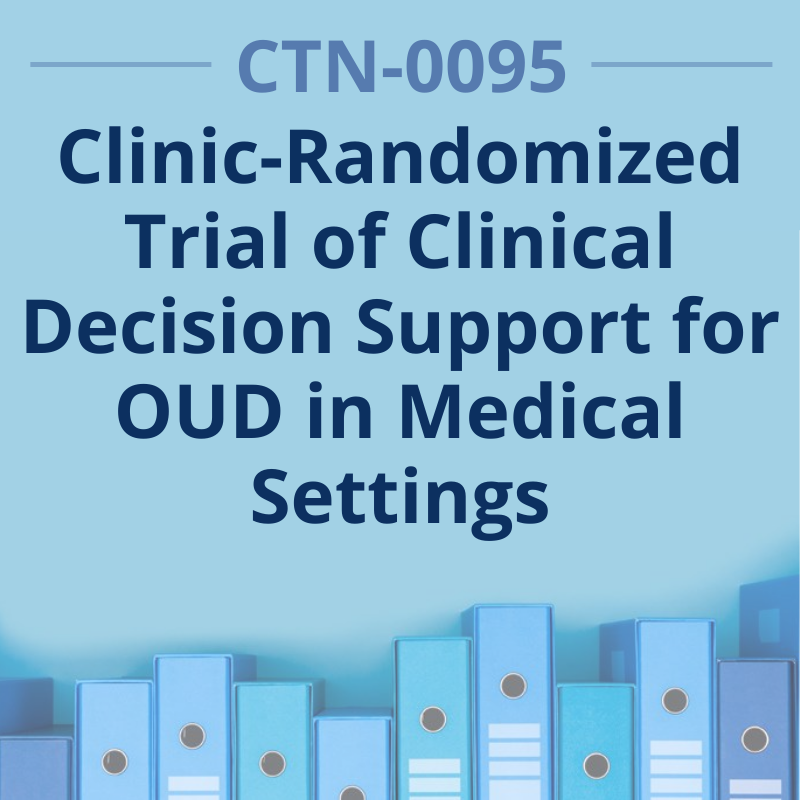CTN-0095: Clinic-Randomized Trial of Clinical Decision Support for Opioid Use Disorders in Medical Settings (COMPUTE 2.0)

Rebecca Rossom, MD, MSCR
Lead Investigator
HealthPartners Institute for Education & Research
rebecca.c.rossom@healthpartners.com
Gavin Bart, MD, PhD, FACP, FASAM
Lead Investigator
Addiction Medicine
Minneapolis Medical Research Foundation
bartx005@umn.edu
There is a significant treatment gap between patients diagnosed with OUD and those who seek treatment, and only a small proportion of those seeking treatment receive MOUD. Primary care is the most common point of healthcare contact in the US and is an important venue to address stigma, improve access to treatment, and improve quality of care. Over the past decade, electronic health record (EHR)-linked web-based point-of-care clinical decision support (CDS) systems designed to improve quality of chronic disease care have become increasingly sophisticated and successful. A web-based and electronic health record (EHR)-integrated OUD clinical decision support (CDS) system to offer expert guidance to primary care providers (PCPs) on the diagnosis and management of OUD was developed and piloted. This project will implement the OUD clinical decision support system in three large diverse health care systems and randomize a minimum of 30 clinics to receive the OUD-CDS intervention or usual care (UC). The project will evaluate the impact of OUD CDS on practice process measures and patient outcomes. The study will also prepare for scalability and dissemination by evaluating facilitators and barriers to implementation, determining the costs of implementation and maintenance, and assessing the short-term cost impacts of the OUD-CDS.
Funded by the NIH HEAL Initiative®.
Primary Findings
In this study of 10,891 patients meeting eligibility criteria, participants in the intervention group had more naloxone orders and orders for MOUD or treatment referral within 30 days, but there was no difference in OUD diagnoses. There were also no differences in median days covered by MOUD over 90 days postindex between intervention and usual care, or in overdose or death rates during the intervention period. These findings demonstrate an OUD clinical decision support system can help increase access to OUD treatment in primary care.

Primary Outcomes Article: Rossom RC, et al. Clinical decision support system for primary care of opioid use disorder: A randomized clinical trial. JAMA Internal Medicine 2025;185(9):1079-1089.
Related Studies
- CTN-0095-A-1: Suicide Prediction and Prevention for People at Risk for Opioid Use Disorder
- CTN-0095-A-2: Reducing Stigma Toward People with Opioid Use Disorder Among Primary Care Clinicians
Related Resources
Node Involvement
Lead Node(s):
All Participating Nodes: